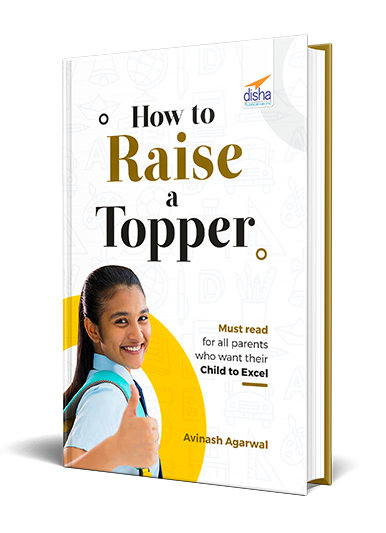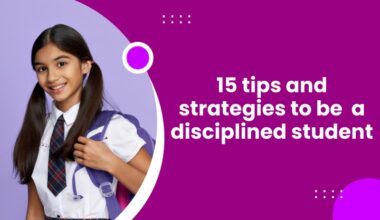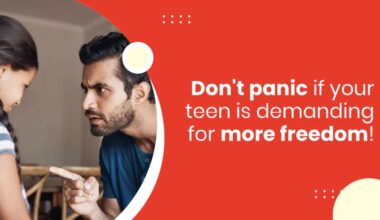If you have a disrespectful teenager in the house and you are at your wits end on how to deal with them, do not be alarmed. Teens are a confused and easily frustrated bunch. It is normal for them to lash out and in some cases it might be a healthy response to outside stressors; as long as it does not escalate.
As parents we unintentionally let disrespectful behaviour continue because we are not paying attention, we are used to it, we are not sure how to change the behaviour, or it fits our expectation of how kids usually behave. Whatever the reason might be, we should be careful in observing when teens cross a line, when we should intervene and how to respond.
But most importantly, we should first understand why they resort to disrespect. Let’s begin.

1. Understand how their brain works.
Inside a teen’s brain, the rational part has not fully developed yet and will not be until they turn 25 years of age. Adults think with the prefrontal cortex which is the part governing rational thinking. Teenage brain processes information with the amygdala, the emotional part. The connection between the amygdala and the prefrontal cortex is not fully developed in the teenage brain and this is the reason why they are incapable sometimes of rational thinking. Most of the time, they are not thinking while making a decision, they are emotionally reacting to it.
This means mood swings, frustration, and impulsive behaviour. When we understand that there is a biological basis for how they are reacting, it is easier to focus on the behaviour and not the person.
2. Establish clear rules that emphasise respect
it is best to clarify early on which behaviours are acceptable and which are not. Some of you might not have a problem with a few odd reactions like slamming doors and walking away from a discussion but many parents have a zero tolerance policy towards these things. It is best to make it clear that certain behaviours like name-calling, threats and putting the other person down will not be tolerated.
3. There is a need behind the behaviour, usually.
Teens lash out and react in shocking ways because the entire purpose is to do just that, to shock you. They will display such rude behaviour to get your attention or signal that they do not feel accepted. At this point, they are likely to demand independence and the need to differentiate themselves from their parents eggs them on to behave in a certain way. As parents, you can sit down with them and let them know that you love them unconditionally and accept them as they are.
4. Don’t sweat the small stuff
In the run to discipline your teen, you might come close to blowing your lid every other day. Do not try to straighten out every act of unruly behaviour in your child, like, bored looks, eye rolls, and muttering under breath. The only things you need to pay attention to are blatant acts of disrespect.
5. Give them their space for independence
Being surrounded by rules all the time can make teens feel constricted and powerless. In order to take back some of that power, they will try to vent through small acts of disobedience such as not washing up after eating, forgetting chores, or ignoring when you call. Allow them these small acts for these are ways through which they try to differentiate themselves.
6. Be a role model
I cannot stress this point enough. Whether it is about motivation or disciplining, being a role model is the biggest inspiration a kid can have. You need to act and model behaviour that you want from your kids.
7. Set conditions and follow through
Some parents make the mistake of getting soft and not following through on threats they made earlier. If your teen has made a mistake, your need to set consequences early on and act on them. Kids at that age are always looking for boundaries they can push. If you set a firm boundary, they feel safer and also are more likely to trust you the next time to keep your word.
8. Don’t take it personally.
Sometimes kids express their frustration by relentlessly poking at their parents. They might roll their eyes, ignore, mutter or scoff at what their parents say among other things. If you let them get under your skin, it becomes a struggle for power instead. It is best to remember that it is the behaviour which needs to be addressed and not the person.
9. Use statements that focus on the behaviour, not the person
Avoid using statements like, “you should study more”, “you must be more responsible”, “you need to behave better around people”. Instead use statements which address the behaviour instead. For example, “When you do not listen to my requests, I feel disrespected.” That will work better.
10. Problem-solve together
After the yelling and heated looks have subsided, sit down with your teenager and discuss how to reduce such disagreements in the future. You can discuss your concerns about the disrespectful behaviour and he or she can offer strategies on how to address this behaviour. Also, show how you can help. For example, if your teen says you always tell them to do some chore when they are in the middle of their favourite show, you can ask them some other time. Work together and find a solution.
Conclusion:
Teenage is a challenging period for both parents and kids. The tips outlined in this article will help you take concrete steps to reduce disrespectful behaviour in your kids. The most important tip however, is to focus on the behaviour and not the person. Master one tip and move to the next. Pretty soon you will have your wonderful and well-behaved kid back at your side.
About The Author
A Gen-Z parent, study skill and Habit coach for students and author of “Toppers’ study hacks”, “Success blueprint for competitive exams” and “How to raise a topper”, Avinash Agarwal has been working in the area of mentoring for over 15 years. Interviews with hundreds of toppers who have cracked different competitive exams have led him to understand the topper mindset. He believes that every child can be a topper and through his sessions aims to teach powerful study strategies and techniques to students so that they can pursue their dreams.


 Useful for all Parents/Teachers
Useful for all Parents/Teachers 






